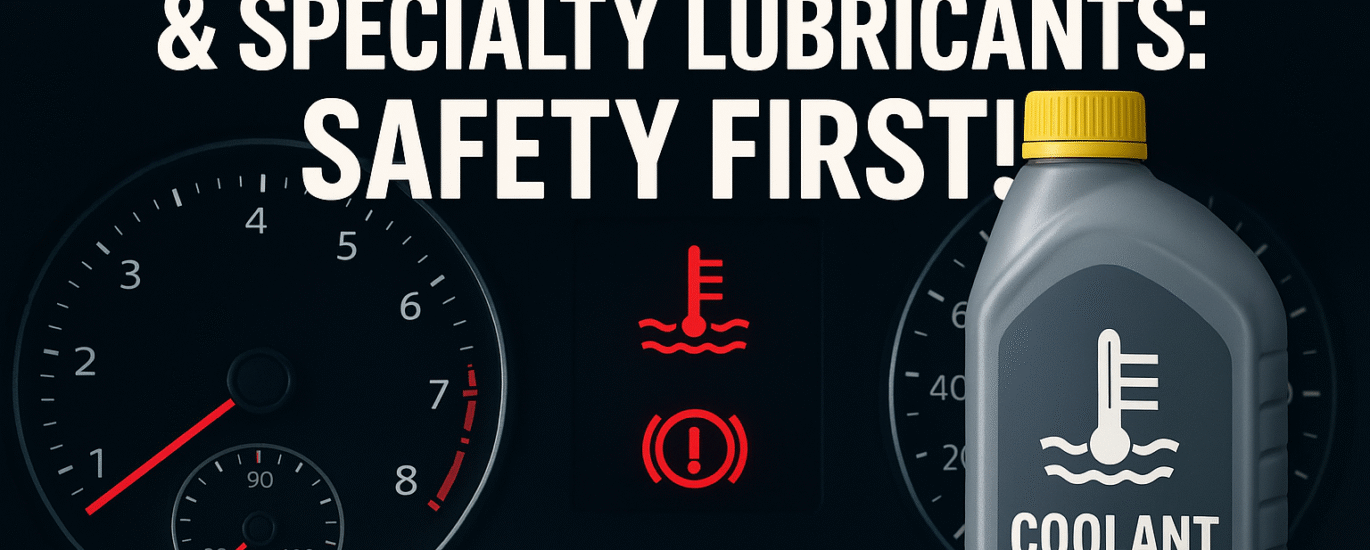When we think of lubricants, most people immediately picture engine oils. But modern vehicles rely on much more than that to stay safe and reliable. Coolants, brake fluids, and specialty lubricants play a vital role—not just in performance, but also in keeping drivers and passengers safe on the road.
This blog explores why these fluids are so important, how they protect your vehicle, and what you can do to maintain them properly.
🌡️ Why Coolants Prevent Overheating in Engines
Engines generate enormous heat during operation. Without a proper cooling system, temperatures can soar, causing metal components to warp or even seize.
Coolants provide:
- Temperature Control – They carry excess heat away from the engine.
- Corrosion Prevention – Protect engine components from rust and scaling.
- Efficiency – Maintain the optimal operating temperature for better fuel economy.
A vehicle running without adequate coolant risks breakdowns, expensive repairs, and complete engine failure.
🛑 Role of Brake Fluids in Accident Prevention
Your vehicle’s braking system is one of the most important safety mechanisms, and brake fluid is at its core.
Functions of brake fluid:
- Transfers Force – Converts pressure from your foot on the pedal into hydraulic pressure that activates the brakes.
- Consistency – Works under extreme temperatures without vaporizing.
- Safety – Ensures quick and reliable stopping power when you need it most.
Low-quality or degraded brake fluid can cause spongy brakes, longer stopping distances, and in worst cases, brake failure.
🚘 Specialty Fluids That Enhance Vehicle Safety
Modern vehicles are equipped with advanced systems requiring specialized fluids:
- Transmission Fluids – Ensure smooth gear shifts and prevent slipping.
- Power Steering Fluids – Enable precise steering control.
- Differential & Transfer Case Oils – Improve traction and handling in different driving conditions.
These specialty lubricants are essential for maintaining control, stability, and overall safety.
✅ Maintenance Checklist for Safe & Reliable Performance
To keep your vehicle safe, always:
- Check coolant levels – Top up if below minimum levels.
- Flush and replace brake fluid – Typically every 2 years or as per manufacturer’s recommendation.
- Inspect specialty fluids – Transmission, steering, and differential oils should be checked regularly.
- Look for leaks – Small leaks can lead to big problems.
- Use recommended fluids only – Always match OEM specifications for best performance.
🔒 Final Thoughts
Lubricants are more than just performance boosters—they are lifelines for safety. Coolants protect engines from overheating, brake fluids prevent accidents, and specialty lubricants keep modern systems running flawlessly.
Neglecting them isn’t just costly—it can be dangerous. So, make vehicle fluid maintenance a top priority for safe and stress-free driving.


